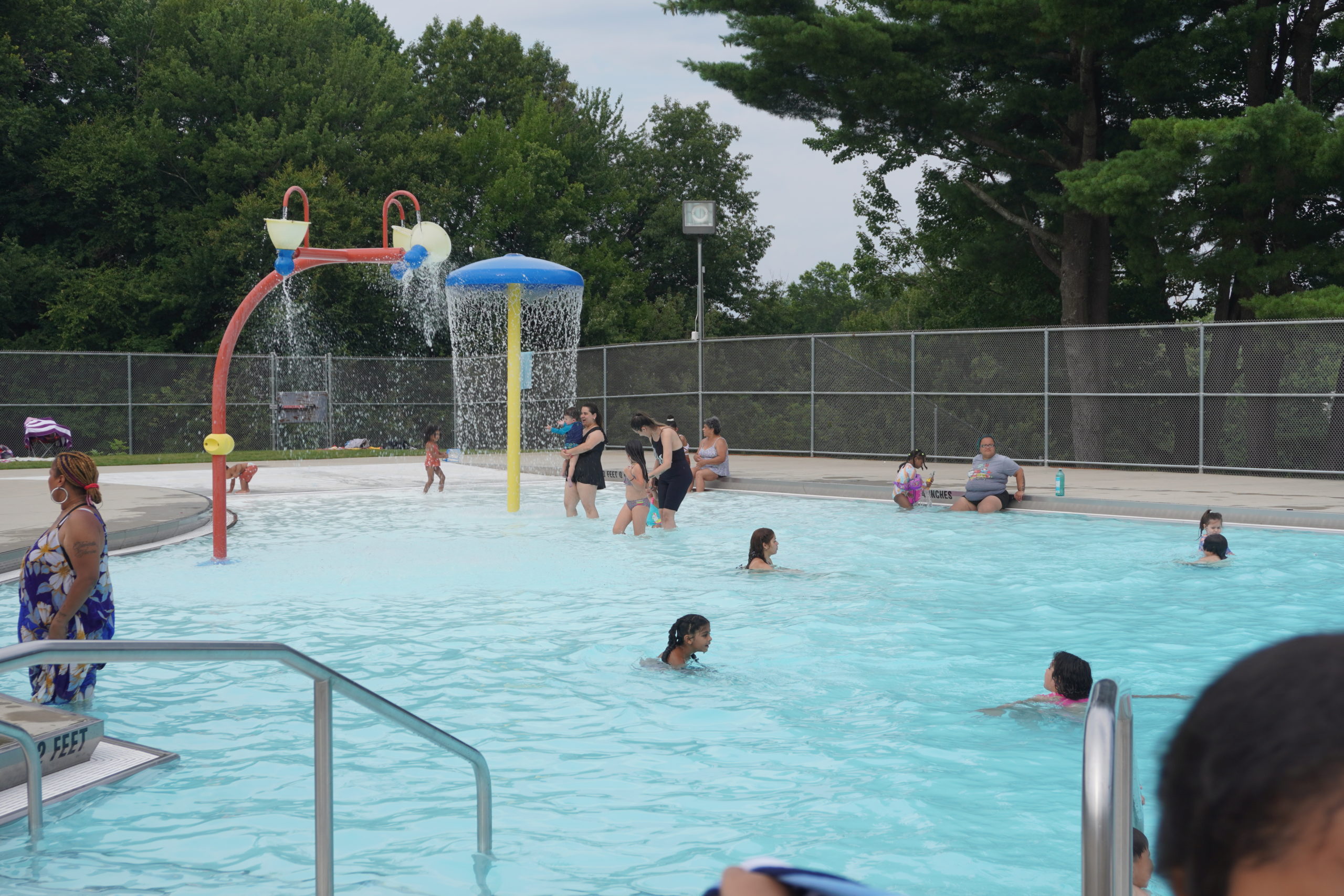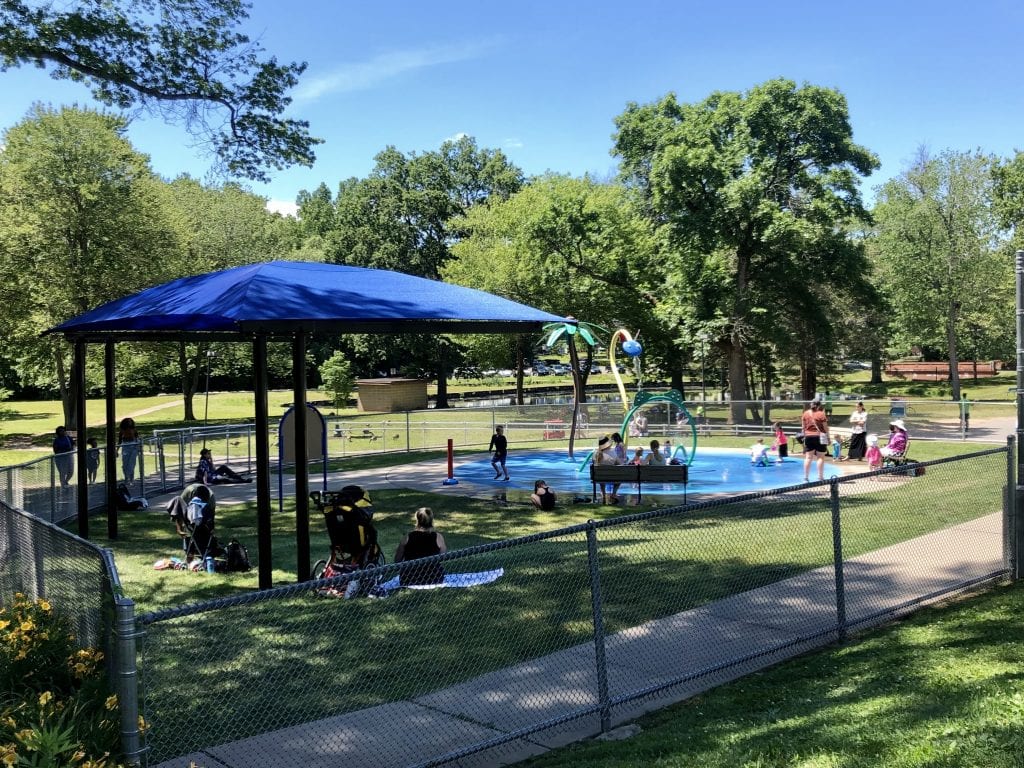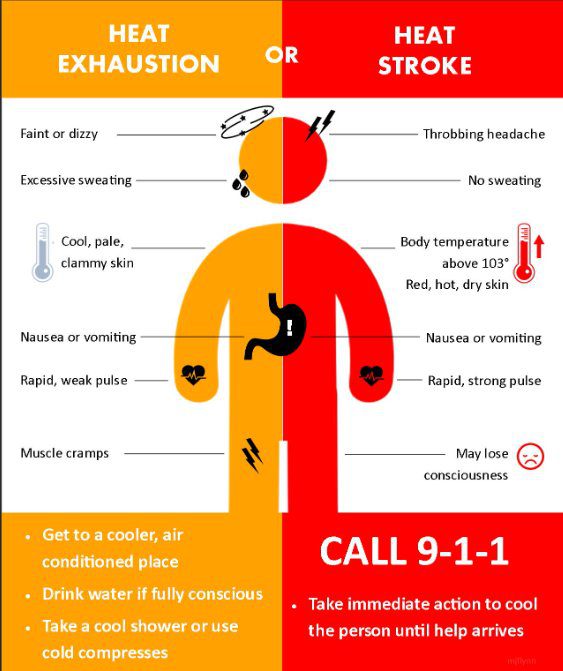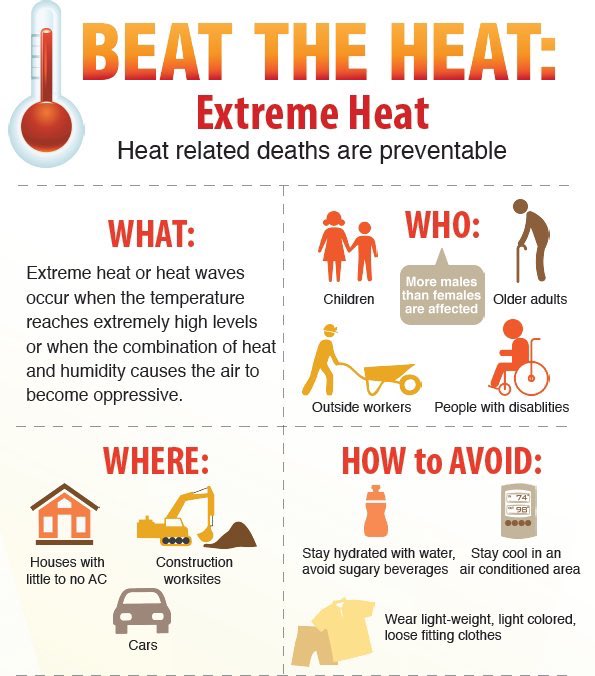Town of West Hartford, State Officials Offer Tips for Dealing with Extreme Heat [Updated]

Audio By Carbonatix

West Hartford's outdoor pools, including Beachland (pictured), Fernridge, Kennedy, and Eisenhower, are open for the summer. Photo credit: Ronni Newton (we-ha.com file photo)
An Extreme Heat Warning is in effect beginning Sunday, June 22, with a heatwave expected to last through Wednesday, July 25. [Updated, June 21]
By Ronni Newton
The first heatwave of 2025 is forecast to begin on Sunday, June 22, and the Town of West Hartford as well as state officials have issued advisories as well as tips for dealing with excessive heat.
On Friday, the National Weather Service issued an “Extreme Heat Watch” – later ungraded to an “Extreme Heat Warning” – for the West Hartford area that begins on Sunday morning. The forecast is for “dangerously hot conditions with heat values up to 110 expected,” according to the National Weather Service. A heat index of 105 results in an “Excessive Heat Warning.”
Sunday’s high temperature is forecast to hit 97 degrees, and the temperature is expected to hit 100 degrees on both Monday and Tuesday, and forecast to be a high of 93 degrees on Wednesday. From Sunday night through Tuesday night, low temperatures are expected to remain in the mid- to upper-70s.
Earlier this week, Gov. Ned Lamont directed Connecticut’s Extreme Hot Weather Protocol to be activated effective beginning at noon on Sunday, June 22, 2025, and remaining in effect through at least 8 p.m. on Wednesday, June 25, 2025.
On Saturday, Connecticut’s Department of Energy and Environmental Protection (DEEP) issued a news release forecasting elevated ozone levels with air quality that “may approach or exceed Unhealthy for Sensitive Groups (USG) levels for these parts of Connecticut” on Sunday and Monday.
“It looks like we are about to experience our first heat wave of the season, and when temperatures get this hot, people who are most vulnerable, especially those who are of a certain age or who have certain medical conditions, should take the necessary precautions to stay cool,” the governor said in a news release. “We are working with our partners to get cooling centers open across Connecticut. Anyone who needs a place to get some relief can call 2-1-1 or visit 211ct.org to get directed to their nearest cooling center. Additionally, our friends at United Way 2-1-1 can help connect anyone in need with the transportation necessary to get to a cooling center.”
The Town of West Hartford announced on Friday that the following municipal cooling centers will be available:
- Noah Webster Library: 20 South Main St. Open Monday through Wednesday from 10 a.m.-8 p.m. and Thursday through Saturday from 10 a.m.-5 p.m.
- Faxon Branch Library: 1073 New Britain Ave. Open Mondays and Thursdays from 10 a.m.-5 p.m., Tuesdays from 10 a.m.-6 p.m., Wednesdays from 1-8 p.m., and Fridays and Saturdays from 10 a.m.-2 p.m.
- Bishops Corner Branch Library: 15 Starkel Rd. Open Mondays and Thursdays from 10 a.m.-5 p.m., Tuesdays from 1-8 p.m., Wednesdays from 10 a.m.-6 p.m., and Fridays and Saturdays from 10 a.m.-2 p.m.
- West Hartford Senior Center: 15 Starkel Rd. in Bishops Corner. Open daily 10 a.m.-5 p.m.
- West Hartford Senior Center: 1106 New Britain Ave. (second floor) in the Elmwood Community Center. Open Monday through Saturday, 9 a.m.-9 p.m., Sundays from 10 a.m.-5 p.m.
Westfarms is also a good place to beat the heat, the town also advised. The shopping center is Monday through Thursday from 10 a.m. until 8 p.m., Fridays and Saturdays from 10 a.m. until 9 p.m. and 11 a.m. until 6 p.m. on Sundays.
Splash pads are open daily at Beachland, Fernridge, Kennedy, and Wolcott parks. Click here to view the hours of operation at each park.

Splash pad at Fernridge Park. Photo credit: Ronni Newton (we-ha.com file photo)
The town’s four outdoor pools(Beachland Park, Eisenhower Park, Fernridge Park, and Kennedy Park) opened for the season on Friday, June 20, and more details can be found here.
On Friday, Connecticut Department of Public Health (DPH) Commissioner Manisha Juthani issued a reminder to those working outside or in non-air-conditioned spaces to use caution, especially during periods of intense heat during the day.
Advice to workers includes staying hydrated, taking frequent breaks in cooler air-conditioned/shaded areas, and limiting time spent in direct sun. Employers are also being urged to schedule physical tests to the morning or evening and to take heat-related illnesses seriously.
“Temperatures are rising, and it’s critical to be prepared for the many associated health dangers, especially ahead of the first heat wave as our bodies adjust to the highest temperatures of the year so far,” Juthani said in a statement. “Extreme heat can cause people to suffer from heat-related illness, and even death. People suffer heat-related illness when their bodies are unable to properly cool themselves, so do your part to ensure that you and the people around you stay cool and hydrated this season.”

Courtesy Town of West Hartford (we-ha.com file image)
According to the news release from Gov. Lamont’s office, the following actions are implemented while Connecticut’s Extreme Hot Weather Protocol is enacted:
- The Connecticut Department of Emergency Services and Public Protection’s Division of Emergency Management and Homeland Security uses its WebEOC communications network, which is an internet-based system that enables local, regional, and state emergency management officials and first responders to share up-to-date information about a variety of situations and conditions.
- Municipalities and other partners submit information on the opening of cooling centers into the WebEOC, providing a real-time database on the availability of these locations statewide. United Way 2-1-1 uses the system to act as a clearinghouse to assist residents in locating a cooling center.
- Regional coordinators from the Division of Emergency Management and Homeland Security monitor WebEOC to respond to any requests from municipalities for state assistance.
- The energy utility companies provide the state with regular updates regarding the impact of the weather conditions on their respective utilities throughout the duration of the protocol.
Although anyone can suffer from heat-related illness, some people are at greater risk than others:
- Infants and young children are sensitive to the effects of high temperatures and rely on others to regulate their environments and provide adequate liquids.
- People 65 years of age or older may not compensate for heat stress efficiently and are less likely to sense and respond to change in temperature.
- People who are overweight may be prone to heat sickness because of their tendency to retain more body heat.
- People who overexert during work or exercise may become dehydrated and susceptible to heat sickness.
- People who are physically ill, especially those with heart disease or high blood pressure, or who take certain medications, such as for depression, insomnia, or poor circulation, may be affected by extreme heat.

Courtesy Town of West Hartford (we-ha.com file image)
Some prevention tips to stay safe in extreme heat include:
- Keep your body temperature cool to avoid heat-related illness.
- Stay in air-conditioned buildings as much as possible. If you must be outdoors, try to limit your outdoor activity to the morning and evening. Try to rest often in shady areas so that your body has a chance to cool off.
- Find an air-conditioned location. (Call 2-1-1 for a list of cooling centers.) Do not rely on a fan as your primary cooling device.
- Avoid direct sunlight.
- Wear lightweight, light-colored clothing.
- Take cool showers or baths.
- Check on those most at-risk several times a day.
- Pets that cannot be brought indoors should be provided ready access to water and shade to keep them cool.
- Never leave pets inside of parked vehicles because temperatures can soar to life-threatening levels within minutes.
Everyone is also reminded to stay hydrated during periods of extreme heat. As we lose fluid through sweat, dehydration is common during very high temperatures. It is strongly encouraged to:
- Drink more water than usual.
- Don’t wait until you’re thirsty to drink more fluids.
- Drink two to four cups of water every hour while working or exercising outside.
- Avoid alcohol or liquids containing high amounts of sugar.
- Remind others to drink enough water.
Eversource also issued a news release on Friday in advance of the expected heat wave. “While high electricity usage during a heat wave can put a strain on the electric system, the energy company is prepared to meet the increased demand, and its crews are ready to respond to any outages or issues that may arise. Eversource system operators are constantly monitoring the system and are ready to reroute power and shift other resources as necessary,” the release stated.
Eversource also provided the following tips for managing energy usage during hot weather:
- Keep air conditioners set as warm as comfort allows. For every degree higher on the thermostat, the air conditioner will use 1-3% less electricity.
- Don’t block air flow. Keep air vents and heat pump vents clear of obstructions such as furniture, curtains, and rugs.
- Operate major appliances during the cooler parts of the day. Energy is conserved by using appliances that create heat, like clothes dryers and dishwashers, early in the morning or late in the evening. There is also less demand on the electric system during these times.
- Keep blinds closed to prevent unwanted direct sunlight from entering a home through windows. Using curtains, shades, and blinds can lower indoor temperatures by up to 20 degrees.
- Set ceiling fans to rotate counterclockwise and at a higher speed in the summer to circulate the air more effectively, creating a cooling, wind chill effect. Remember to turn the fan off when leaving the room – fans cool people NOT rooms.
- Grill outside and keep the chill inside. Cooking outside keeps heat created by stove/oven outside of the home.
Like what you see here? Click here to subscribe to We-Ha’s newsletter so you’ll always be in the know about what’s happening in West Hartford! Click the blue button below to become a supporter of We-Ha.com and our efforts to continue producing quality journalism.




Well, here we are, the first summer ever to hit 100 degrees. I’ve never seen such extensive information and warnings on something that happens every year and has happened for hundreds of years. At least the governor is on it, maybe he can reverse this? The best tip I saw was “stay cool”. Seriously, do people in the media really think no one has a clue what to do when it gets hot out?